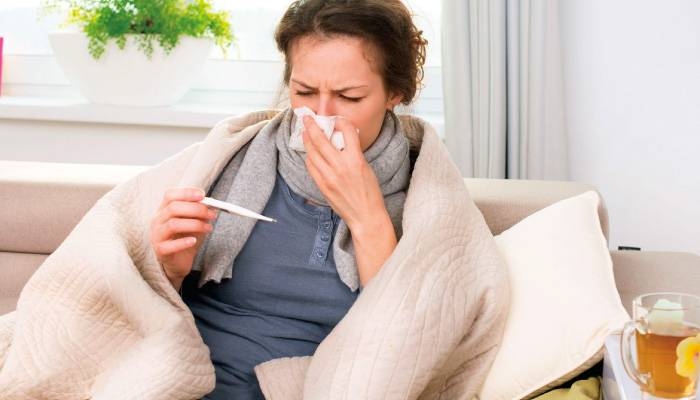Greece has entered seasonal flu season, two years after the virus “lost sight” of its victims in isolation (quarantine) during the pandemic.
Doctor visits by patients with flu symptoms are increasing, as are positive laboratory tests for seasonal illness. At the same time, and we are already in the second half of November, flu shots are not living up to expectations. Moreover, experts warn that this year the flu kicks in. Until yesterday, 1,890,000 flu shots had been given, while on average, 3,000,000 to 3,500,000 shots are usually given in the two months from October to November.
According to the latest ΕΟΔΥ data, visits to doctors for patients with flu symptoms increased by 12% last week.
12.2% of the samples tested (total 49 samples from hospitals and primary care physicians) were positive for influenza A viruses, mainly A(H3N2). However, it is worth noting that currently the number of sent and tested samples is still low (only 3% in the last week). Since the beginning of November, the first severe case of influenza with hospitalization in ΜΕΘ in an 82-year-old male in a high-risk clinical group. Last week, about 4% of visits to the primary care physician were for patients with flu symptoms, especially among children aged 5 to 14 years, and the number of visits for flu symptoms reached 8%.
Vice-President of ΕΟΔΥ, Associate Professor of the Department of Epidemiology and Preventive Medicine of the EKPA Dimitris Paraskevis notes: “We see that we have a circulation of respiratory viruses and out of 1000 patients examined by doctors there is a significant number of cases of influenza. This is certainly more incidents than last year when we had measures (isolation) due to the COVID-19 pandemic. There has also been an increase in cases of children being infected with viruses, which is to be expected after the first two years of the pandemic.”
As Mr. Paraskevis explains, in the previous two years, due to the implementation of measures to limit the spread of COVID-19, citizens have not come into contact with respiratory viruses, as a result of which their immunity against these viruses is currently weakened.
It is possible that some children have not even been exposed to viruses such as influenza, and do not even have immunity against it, which means they are even more likely to get sick. “All this suggests that particularly vulnerable populations should be vaccinated against influenza and observe measures such as respiratory hygiene, hand hygiene, wearing a mask, avoiding close contact and isolation in case of symptoms,” emphasizes the professor.
Last year and this year, influenza vaccination was made mandatory by electronic prescription, which greatly facilitated the registration and collection of statistical data.







More Stories
Vaccine to combat antibiotic resistance
Oral health: increased risk of cancer
Avian influenza virus found in cow's milk